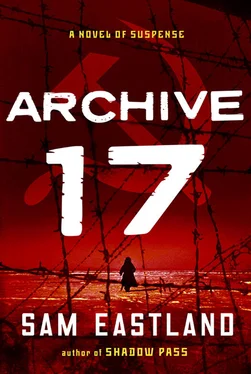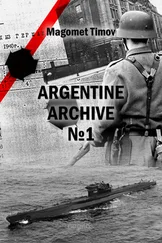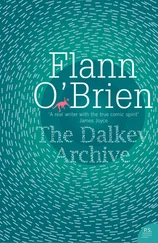Sam Eastland - Archive 17
Здесь есть возможность читать онлайн «Sam Eastland - Archive 17» весь текст электронной книги совершенно бесплатно (целиком полную версию без сокращений). В некоторых случаях можно слушать аудио, скачать через торрент в формате fb2 и присутствует краткое содержание. Жанр: Исторический детектив, на английском языке. Описание произведения, (предисловие) а так же отзывы посетителей доступны на портале библиотеки ЛибКат.
- Название:Archive 17
- Автор:
- Жанр:
- Год:неизвестен
- ISBN:нет данных
- Рейтинг книги:3 / 5. Голосов: 1
-
Избранное:Добавить в избранное
- Отзывы:
-
Ваша оценка:
- 60
- 1
- 2
- 3
- 4
- 5
Archive 17: краткое содержание, описание и аннотация
Предлагаем к чтению аннотацию, описание, краткое содержание или предисловие (зависит от того, что написал сам автор книги «Archive 17»). Если вы не нашли необходимую информацию о книге — напишите в комментариях, мы постараемся отыскать её.
Archive 17 — читать онлайн бесплатно полную книгу (весь текст) целиком
Ниже представлен текст книги, разбитый по страницам. Система сохранения места последней прочитанной страницы, позволяет с удобством читать онлайн бесплатно книгу «Archive 17», без необходимости каждый раз заново искать на чём Вы остановились. Поставьте закладку, и сможете в любой момент перейти на страницу, на которой закончили чтение.
Интервал:
Закладка:
“Gramotin?” croaked Sedov.
Gramotin lifted his head. Frozen breath had turned his hair into a mane of frost. “Sedov? Is that you?”
“Yes.”
“Where are the others?”
“Gone.”
Gramotin clambered up until he was resting on his knees. “And they left you?”
“I am wounded,” explained Sedov.
From the trees above, water dripped from melting icicles, sprinkling like diamonds upon Gramotin’s head.
“They shouldn’t have left you.” Gramotin’s voice rose with indignation. He limped over to Sedov and flopped down beside him.
“A wolf licked my face,” remarked Sedov. “I thought it was a dream.”
“A wolf?” Gramotin looked around nervously.
“Where are the other guards?”
Gramotin leaned over and spat. “There are no others. Only me. The rest all ran away.”
“Cowards,” muttered Sedov.
“Looks like we’ve both been let down.” Although Gramotin would never have admitted it, he was glad to have run into Sedov, as opposed to any of the others. Tarnowski either would have killed him by now or would have died trying and Lavrenov would be wheedling some deal to save his life. Pekkala, being a Finn, would probably have vanished like a ghost. But Sedov was not like those men. There had always been a certain gentleness about him, which Gramotin could not help admiring, even as he despised this fatal weakness in Sedov’s character. Men like Sedov did not usually last more than a few months in the camp. The ones who tended to live longest were men more like himself, who showed a minimum of compassion for those around them and who lied and cheated and stole. If they did not arrive at Borodok that way, they soon learned how to behave that way if they wanted to survive. Sedov had been the exception. Not only had Sedov endured, but he had never lost that fundamental goodness which he brought with him to the camp. It was not in Gramotin’s nature to tolerate goodness. At Borodok, it represented a useless appendage, like that of an animal doomed to extinction, and it was in Gramotin’s nature to attempt to beat it out of Sedov, year after year, with a relentless cruelty that astonished even himself.
Sitting there beside this wounded man, who neither groveled for his life nor used up his last breath to kill another human being, Gramotin experienced remorse. This had never happened to him before and it immediately plunged him into a state of great confusion. He felt an overwhelming urge to perform some act of kindness, however small, to atone for all the suffering he had caused.
Gramotin considered apologizing to Sedov, but the idea struck him as absurd. Then he toyed with the notion of abandoning his search for Pekkala and carrying Sedov back to the camp hospital. But this idea Gramotin also cast aside, knowing that even if Sedov did recover from his injury, which looked doubtful, he would be shot for attempting to escape.
As Gramotin pondered this, he pulled a loaf of paika bread from his pocket, broke off a piece and pressed it into Sedov’s mouth. Then he bit off a slab for himself.
For a while, there was no sound except the two men chewing on the stale bread.
“I need you to do me a favor,” said Sedov.
“I just did,” mumbled Gramotin, his mouth still full of bread.
“A bigger favor.”
“What are you talking about?”
“I need you to shoot me.”
Gramotin turned and stared at Sedov.
“You’ve shot plenty of people before,” Sedov reasoned.
“Not like this.” Hurriedly, Gramotin stood, leaning on his rifle as if it were a walking stick. “I have to go.”
“What if the wolves come back?”
For a moment, the permanent rage which had molded itself into the contours of Gramotin’s face completely vanished. Instead, he just looked terrified. From his pocket, he removed the gun he had taken off Klenovkin’s body. Tossing it into Sedov’s lap, he turned and quickly walked away. Although he knew that Sedov would not use that gun to harm him, it dawned on Gramotin that, if the positions had been reversed, he would have used whatever bullets remained in that pistol to shoot Sedov dead, wolves or no wolves. He would not have been able to help himself. This, too, was in his nature.
Gramotin had not gone far when he heard the flat crack of a pistol back in the woods. He paused, wondering whether to go back and retrieve the gun. Remembering the wolves, he decided against it and pushed on.
Three hours later, beside the Trans-Siberian Railroad, Gramotin found the Comitati encampment from the night before. They had not been gone long. Their fire was still smoking. Now that Gramotin had stopped moving, his sweat immediately began to cool. He could feel the warmth being stripped from his body, like layers peeled off an onion. Without a second thought, Gramotin threw himself down on the smoldering ground and lay there, fingers dug into the ashes, warming himself. Minutes passed. The heat fanned out across his ribs like a bird spreading its wings. Only when he could smell the wool of his coat beginning to singe did he finally get to his feet. He slapped the embers from his clothes and scrambled up the embankment to the track.
The sight of these rails brought back to Gramotin memories of the Revolution, when he had fought first against the White Army of Admiral Kolchak, then against the Czech Legion, and finally against the Americans of the ill-fated Siberian Expeditionary Force. Of these three, it was the Czechs who had left him with the deepest mental scars. They had commandeered trains, fitted them with guns, blast shields, and battering rams, bestowed on them heroic names, then rode the tracks to Vladivostok, destroying everything in their path. Gramotin himself had taken part in an ambush against one of these armored convoys. Crouching with a dozen comrades in hastily dug foxholes, he had fired an entire machine-gun belt at a Czech locomotive, christened the ORLIK in large white letters painted on its front, and barely left a blemish on its steel hide. And then that train, without even bothering to slow down, had turned its guns upon the place where Gramotin was hiding with his men and chopped the earth to pieces. All Gramotin could do was cower in his hole and wait for the shooting to stop. It was over in less than a minute.
For a while, the only sound was the groaning of the wounded.
Then, to his horror, Gramotin heard a shriek of brakes in the distance. The metal beast reversed until it came level with the place where the Czechs had been ambushed.
Seeing men jump down from the train, Gramotin grabbed the nearest body from among his bullet-riddled comrades and hid himself beneath the bloody corpse.
With pistols in their hands, the Czechs searched among the dead, shooting the wounded and emptying their pockets of anything that caught their eye. Gramotin trembled uncontrollably as one man, wearing a heavy turtleneck sweater and a sleeveless leather jerkin which came down to his knees, pulled aside the body under which he had been hiding.
Too terrified to run, Gramotin lay there with his face pressed against the earth, waiting for a bullet in the head.
But the bullet never came.
Ransacking the corpse, the Czech gathered up cigarettes, papers of identification, a compass, and a small linen bag containing shreds of dried salmon, but he did not touch Gramotin.
There was no doubt in Gramotin’s mind that the man could see him breathing. He had no idea why his life had been spared. In years to come, this strange act of kindness so tormented Gramotin that there were times he wished he had been killed along with the rest.
When the Czechs finally left, Gramotin walked among the bodies and discovered he was the only survivor.
As evening fell on that day of the ambush, Gramotin glimpsed the smokelike shadows of wolves approaching through the forest. Climbing a tall pine tree, he clung to the prickly branches, sap gluing his hands to the bark, while the wolf pack feasted on the dead.
Читать дальшеИнтервал:
Закладка:
Похожие книги на «Archive 17»
Представляем Вашему вниманию похожие книги на «Archive 17» списком для выбора. Мы отобрали схожую по названию и смыслу литературу в надежде предоставить читателям больше вариантов отыскать новые, интересные, ещё непрочитанные произведения.
Обсуждение, отзывы о книге «Archive 17» и просто собственные мнения читателей. Оставьте ваши комментарии, напишите, что Вы думаете о произведении, его смысле или главных героях. Укажите что конкретно понравилось, а что нет, и почему Вы так считаете.











